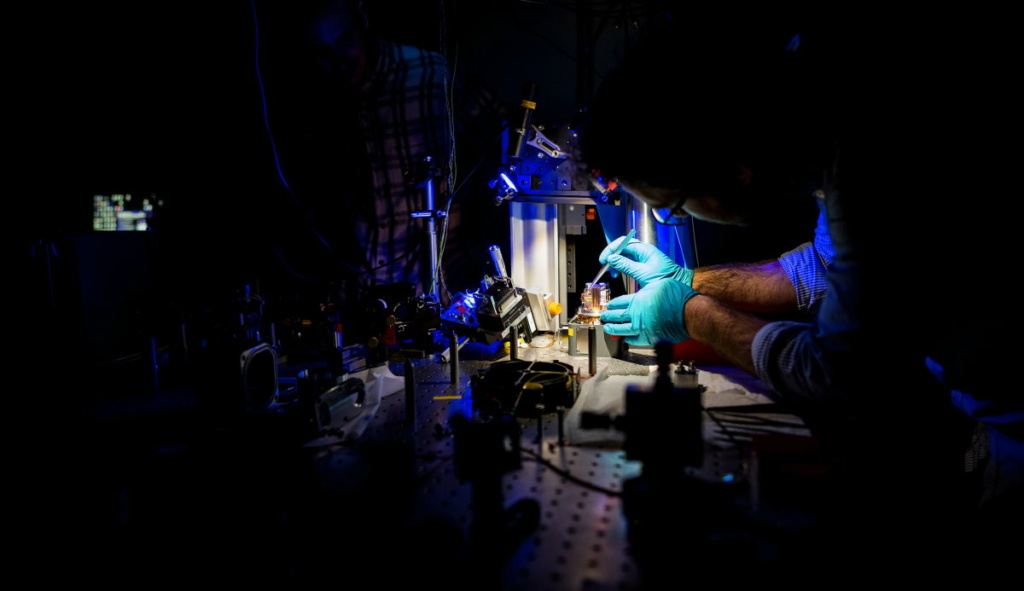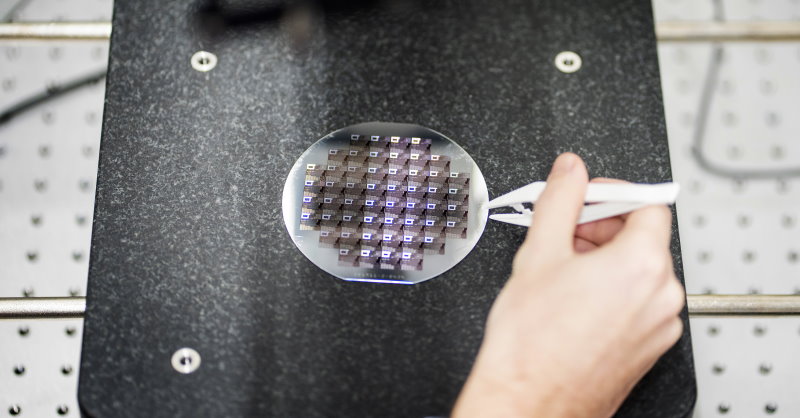
Delft quantum ecosystem scores two wins with Fujitsu lab opening and record investment
Fujitsu is extending its efforts in quantum technology with the opening of the Fujitsu Advanced Computing Lab in Delft. This event marks an important step up in the collaboration between the global IT giant and Qutech, the quantum research institute at Delft University of Technology (TU Delft). The lab is the first of its kind for Fujitsu in Europe and the company’s first to focus on quantum technology outside of Japan.
One week earlier, TU Delft spinoff Qphox announced that it had obtained 8 million euros in a financing round led by Quantum Delta NL Participations and the European Innovation Council. It’s the largest investment in a quantum company in the Netherlands so far. Qphox develops a quantum modem device, which converts quantum information between the microwave domain and optical telecom frequencies. That allows for low-loss and high-fidelity transmission of quantum states, an important step in scaling systems that need to be kept at unwieldy cryogenic temperatures.
Giant leap
Fujitsu’s decision to establish its Advanced Computing Lab in Delft as well as the successful financing round of Qphox reflect the foothold that the Netherlands in general and Delft and Qutech in particular have in quantum research worldwide. This is a result of the significant financial support especially from the Dutch National Growth Fund through the Quantum Delta NL Foundation and QDNL Participations, in addition to the European support through the EIC.
Qutech has generated several startups and scale-ups over the years, covering a large part of the quantum technology implementation system, with 300 FTEs working at Qutech and the young companies combined. Fujitsu’s new lab builds on the existing research partnership with Qutech in the area of spin qubits in diamonds. Its establishment adds to the other partnerships Delft has set up with Intel and Microsoft. It’s essential for the Qutech ecosystem to collaborate with such high-performance computing companies since the prime commercial promise of quantum technology is its potential to enable a giant leap in computing speed.

Stamina
Quantum technology was recently designated as one of ten strategic technologies by the Dutch government. As part of the updated industrial policy, these areas will receive priority in support because of their importance for the economy, society and national security. In 2035, the Netherlands aims to be leading in the EU in the fabrication and commercialization of quantum technology.
This is a tall order. In a recent report, public investment bank Invest-NL highlighted a worrying lack of private funding for Dutch quantum startups, estimating the need for 1-2 billion euros in investment to reach profitability. The quantum sector, including the startups in Delft, has only seen around 10 million euros in private investments so far.
According to Kees Eijkel, business development director at Qutech, Europe has a leading edge in scientific discovery in many areas but is playing catch-up when commercial scale-up is concerned. However, the quantum world at large is still in the proof-of-concept phase, and revenue – if any – is typically generated by selling prototypes for R&D purposes. Significant commercial traction may be at least a decade away, Eijkel thinks. Stamina is therefore required.
Fruition
In the US, much more private funding is targeting quantum technology. The absence in Europe of large computing firms like IBM or Fujitsu, essential for commercialization, adds another hurdle for European startups aiming to scale up toward fabrication and commercialization in the Netherlands and Europe. As CEO Simon Groeblacher of Qphox puts it, it’s important to get the right support at the right time, irrespective of which global region the support comes from. It would be very undesirable to be blocked by the Dutch government or the EU from working with non-EU partners when no local alternatives are available.
The opening of the Fujitsu lab and further financing of Qphox highlight the progress the Dutch quantum ecosystem is making in this phase of the technology development cycle. It will be interesting to see how the Netherlands and the EU intend to reverse the trend that deep tech comes to fruition outside of Europe.
Main picture credit: Qutech





